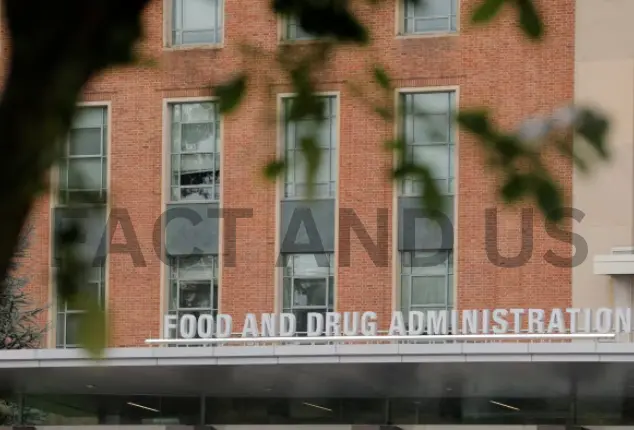The agency said there was insufficient data to allow the use of a treatment for PTSD that involves the drug known as Ecstasy.

Contents
US drug regulators reject
The Food and Drug Administration on Friday declined to approve MDMA-assisted therapy for the treatment of post-traumatic stress disorder, dealing a serious blow to the nascent field of psychedelic medicine and dashing the hopes of many Americans who are desperate for new treatments. The F.D.A. said there was insufficient data to allow its use, and it asked the company seeking approval for the treatment, Lykos Therapeutics, to conduct an additional clinical trial to assess whether the drug, commonly known as Ecstasy or molly, would be safe and effective.
An additional clinical trial could add years, and millions of dollars, to the approval process.If approved, MDMA would have become the first psychedelic compound to be regulated by federal health authorities. Supporters of psychedelic medicine were deeply disappointed, and some said they were stunned, having assumed the therapy’s promising data would overcome flaws in the company’s clinical trials, which had been designed in consultation with F.D.A. scientists.

“This is an earthquake for those in the field who thought F.D.A. approval would be a cinch,” said Michael Pollan, the best-selling author and co-founder of the UC Berkeley Center for the Science of Psychedelics. His book, “How to Change Your Mind,” helped catalyze public interest in the therapeutic potential of psychoactive compounds, demonized during the nation’s long war on drugs.
But the agency’s decision had not been entirely unexpected, after a group of independent experts convened by the F.D.A. to evaluate Lycos’s data met in June and did not recommend the treatment. On two central questions, the experts voted overwhelmingly that the company had not proven the treatment was effective, and that the drug therapy’s benefits did not outweigh the risks. The agency generally follows the recommendations of its outside panels. Critics, however, have questioned the panel’s expertise, noting that only one of its 11 members had experience in psychedelic medicine.
Lykos said it would appeal the agency’s decision. “The F.D.A. request for another study is deeply disappointing, not just for all those who dedicated their lives to this pioneering effort, but principally for the millions of Americans with PTSD, along with their loved ones, who have not seen any new treatment options in over two decades,” Amy Emerson, the company’s chief executive, said in a statement. The F.D.A. declined to discuss the decision or release the letter it sent to Lykos outlining its reasoning, citing confidentiality rules. But in a statement, an F.D.A. spokesperson said that “the agency recognizes that there is great need for additional treatment options for mental health conditions such as PTSD.


“We will continue to encourage research and drug development that will further innovation for psychedelic treatments and other therapies to address these medical needs.”
Most psychedelics are listed as Schedule I drugs, alongside heroin and marijuana — illegal substances that have “no currently accepted medical use and a high potential for abuse,” according to the Drug Enforcement Administration. Although the F.D.A.’s decision on Friday evoked dismay and disappointment among researchers, patients and investors, Mr. Pollan said the decision was unlikely to halt the growing acceptance of the psychedelics field, which barely existed a decade ago. “This is surely not the end of the game. There’s enough evidence, need and energy to move psychedelic medicine forward,” he said.
Seven years ago, the F.D.A. granted MDMA “breakthrough therapy” status, a designation that recognizes a new drug’s potential benefits and accelerates the review process. MDMA, or midomafetamine, is not a traditional psychedelic. The drug promotes self-reflection and feelings of connectedness, and before it was banned in 1985, MDMA enjoyed decades of use among psychotherapists who valued its ability to help patients confront deeply embedded trauma.

Lykos worked closely with the F.D.A. to design the clinical trials that were used to evaluate the safety and benefits of MDMA-assisted therapy. The company’s published results were surprising: More than two-thirds of the patients who received MDMA no longer qualified for a PTSD diagnosis six months after the final treatment. Still, Lykos application was undeniably unconventional, not just given the illegal status of the drug but also because of the talk therapy component, which the company says is integral to MDMA’s therapeutic benefits. The F.D.A. does not regulate psychotherapy, which supporters of the novel treatment say has complicated the pathway toward approval for Lykos.
In a statement on Friday evening, Lykos offered clues about the agency’s request for an additional trial. The statement referred to a number of issues, including concerns that the data might have been skewed by the enrollment of patients who had previously tried MDMA. The company also suggested that agency officials were unconvinced by data describing the durability of MDMA-therapy, and were uncertain about the benefits of the talk therapy component of the treatment.
The prospect of a new treatment had been highly anticipated, especially among military veterans, who suffer from disproportionately high rates of PTSD, deaths by suicide and substance abuse.

“We are frustrated that the F.D.A. has kicked the can down the road in the face of such urgent need and clear demand from the veteran community for more effective PTSD treatments,” said Lt. General Martin R. Steele, a former Marine Corps commander and a co-founder of Reason for Hope, an organization that promotes psychedelic therapy for veterans with tough-to-treat psychiatric problems. “Delay will only lead to more unnecessary suffering and lives lost.”
It’s unclear what impact, if any, the decision will have on other “breakthrough therapy” psychedelics now under review by the F.D.A. Those include a form of LSD used to treat generalized anxiety disorder, and studies examining the use of psilocybin for severe depression.
The company’s most recent Phase 3 clinical trial for MDMA included more than 100 people who had suffered from PTSD for an average of 15 years. According to the company’s data, 86 percent of participants who received MDMA combined with psychotherapy achieved a measurable reduction in the severity of their symptoms, and 71 percent had improved so much that they no longer met the criteria for a PTSD diagnosis. For those who had received a placebo plus talk therapy, that figure was 48 percent.
Long-term follow-up data suggested that the benefits had lasted at least six months after the final dose, with 39 percent of those who received MDMA still with symptoms in remission, compared to 11 percent for the placebo-plus therapy group.
It has been more than two decades since the F.D.A. approved a new treatment for PTSD, and the existing suite of drugs has limited efficacy. The two most commonly prescribed medications, both of them selective serotonin reuptake inhibitors, or SSRIs, are effective in less than a third of patients. Even then, the drugs must be taken continuously.
In contrast, Lykos MDMA therapy consisted of three, daylong dosing sessions.
In the run-up to the decision, supporters of psychedelic medicine waged a highly public lobbying campaign. Earlier this week, 80 members of Congress from both political parties signed letters to the Biden administration urging federal regulators to approve Lykos application.
In recent years, thousands of Americans have gone abroad in pursuit of MDMA-therapy, sometimes in unregulated clinics. Many have returned with Lazarus-like tales of recovery from the torments of PTSD, a condition that affects an estimated 13 million Americans.
Still, most scientists agree that more research is needed on MDMA’s possible side effects, including the ways the drug might affect those with cardiac problems — a risk the Lykos studies failed to measure. “In order to approve a drug, we must determine that the research and data submitted by the sponsor show that the drug is safe and effective for the intended use.”Lykos Therapeutics said it would continue working with the FDA but said additional research could take years to complete. It acknowledged using hallucinogenic to treat PTSD is a “novel” idea but expressed frustration over the setback.
“The FDA request for another study is deeply disappointing, not just for all those who dedicated their lives to this pioneering effort, but principally for the millions of Americans with PTSD, along with their loved ones, who have not seen any new treatment options in over two decades,” Amy Emerson, the Chief Executive Officer of Lykos Therapeutics, said in a statement.
This is the first time the agency has considered a psychedelic for medical use.
The drug is currently listed as Schedule I under the Controlled Substances Act, as are heroin and cannabis. That classification is defined as drugs “with no currently accepted medical use and a high potential for abuse”. MDMA has been touted as having therapeutic benefits for people suffering from some mental health disorders. But advisers for the FDA had expressed doubt. In June, an expert panel at the agency voted 10-1 against the overall benefits of the party drug when used to treat PTSD.
Nine of the 11 advisers said the available data did not show the effectiveness of the drug in patients. One Lykos Therapeutics trial found 71% from the treatment group no longer met PTSD criteria, compared to 48% from a group taking a placebo. But FDA panellists voiced numerous concerns with the data. Issues included that the treatment may not offer long-lasting benefits, concerns about the ways the studies were designed, and the potential risk for heart problems, injury and abuse.
The FDA was not required to follow the committee’s vote, but the agency often follows the panel’s feedback, which it did in this case. Last year, Australia’s traditionally conservative medicines regulator approved the use of drugs – including MDMA – to assist therapy sessions.
Stay connected with Fact and US for more such news.
